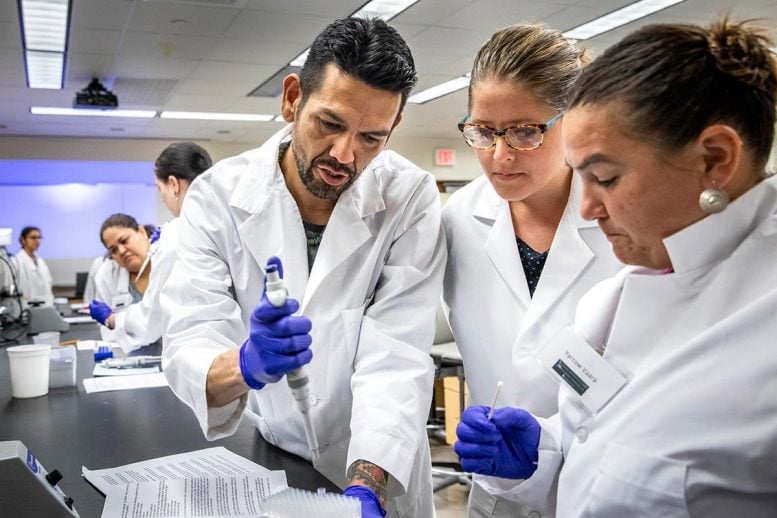
Participants and faculty collaborate at the 2019 Summer internship for INdigenous peoples in Genomics (SING) workshop at the University of Illinois, Urbana-Champaign. Credit: Photo by Fred Zwicky
An international team seeks to integrate diverse voices, experiences, and expertise into the scientific practices of ancient DNA research and foster better collaboration with Indigenous communities.
Ancient DNA research, also known as aDNA, has made significant strides in recent years and has shed light on a variety of biological, societal, and historical issues.
The study of aDNA has aided in the understanding of disease evolution, historical migration patterns, the impacts of European colonialism, and much more. However, the new information acquired through aDNA research has not come without expenses and controversy, notably with the ethical usage of human genetic material from the past.
The National Science Foundation has awarded a $350,882 collaborative grant to the University of Connecticut, the Denver Museum of Nature & Science, and partners across the United States, Canada, and Europe to analyze the current ethical landscape of ancient DNA research. The team will also create tools to support researchers and Indigenous communities in North America to make more equitable and informed decisions.
“In many cases, aDNA studies continue to fall in a gray area of ethical oversight, despite greater awareness by researchers of the potential pitfalls,” says Deborah Bolnick, associate professor of anthropology at the University of Connecticut. “With this project, we will include Indigenous leaders in the conversation alongside researchers to attempt to build an ethical framework that encourages positive, collaborative relationships between scientists and Indigenous communities.”
The rights determined for living “human subjects” are often not applied in aDNA studies. Growing skepticism of clinical health studies in Indigenous communities and mistrust of researchers have resulted from the impending ethical issue. This poses a problem since the expanding area of aDNA research could unlock countless questions and also has profound social, political, psychological, and legal implications for Indigenous communities in North America today.
The NSF-funded project will involve public lectures and workshops to bring together scientific and Indigenous leaders, publishing articles in academic and popular publications, mentoring a postdoctoral researcher, and a digital platform with online resource kits for university classrooms, museums, ethics boards, Indigenous cultural preservation offices, journals, labs, and other stakeholders.
“This is a tremendously exciting project because it will both improve our understanding of the ethics of genomics and lead to practical, on-the-ground solutions for Indigenous communities and practitioners,” said Chip Colwell, Ph.D., senior curator of anthropology at the Denver Museum of Nature & Science and one of the principal investigators on the project.
Along with Colwell, the two-year project is under the direction of Deborah Bolnick (University of Connecticut), Jessica Bardill (Concordia University), Ripan S. Malhi (University of Illinois, Urbana-Champaign), Jessica Kolopenuk (University of Alberta), George Nicholas (Simon Fraser University) and Laura S. Weyrich (The Pennsylvania State University).
About the Denver Museum of Nature & Science
The Denver Museum of Nature & Science is the Rocky Mountain Region’s leading resource for informal science education. Our mission is to be a catalyst and ignite the community’s passion for nature and science. The Museum offers a wide variety of engaging exhibitions, programs, activities, and scientific research to inspire public appreciation and understanding of the wonders of Colorado, Earth, and the universe. The Museum is located at 2001 Colorado Blvd., Denver, CO, 80205. Information: dmns.org or 303.370.6000. Many of the Museum’s educational programs and exhibits are made possible in part by the citizens of the seven-county metro area through the Scientific & Cultural Facilities District. The Museum is accredited by the American Alliance of Museums.

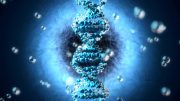
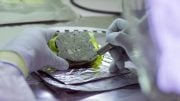
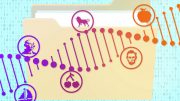
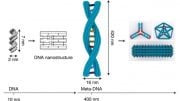
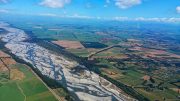


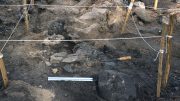
Be the first to comment on "Analyzing the Current Ethical Landscape of Ancient DNA Research"